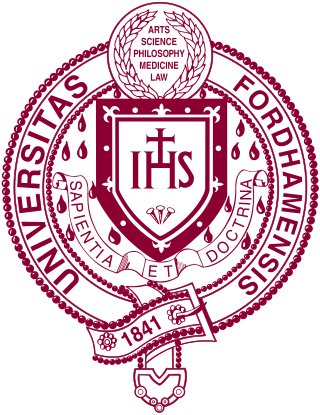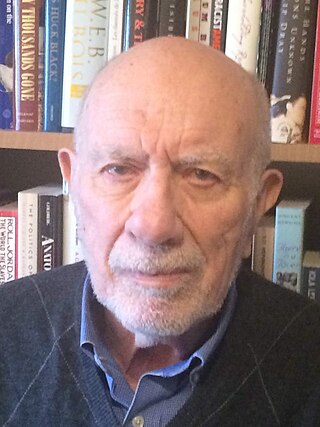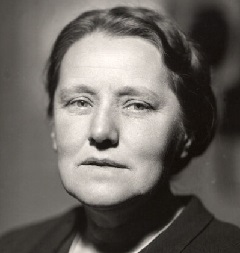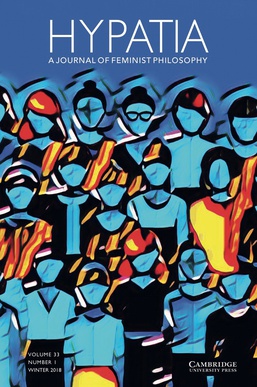
George Boole was a largely self-taught English mathematician, philosopher, and logician, most of whose short career was spent as the first professor of mathematics at Queen's College, Cork in Ireland. He worked in the fields of differential equations and algebraic logic, and is best known as the author of The Laws of Thought (1854) which contains Boolean algebra. Boolean logic is credited with laying the foundations for the Information Age.

Alfred North Whitehead was an English mathematician and philosopher. He created the philosophical school known as process philosophy, which has been applied in a wide variety of disciplines, including ecology, theology, education, physics, biology, economics, and psychology.

Fordham University is a private Jesuit research university in New York City, New York, United States. Established in 1841 and named after the Fordham neighborhood of the Bronx in which its original campus is located, Fordham is the oldest Catholic and Jesuit university in the northeastern United States and the third-oldest university in New York State.
John David Caputo is an American philosopher who is the Thomas J. Watson Professor of Religion Emeritus at Syracuse University and the David R. Cook Professor of Philosophy Emeritus at Villanova University. Caputo is a major figure associated with postmodern Christianity and continental philosophy of religion, as well as the founder of the theological movement known as weak theology. Much of Caputo's work focuses on hermeneutics, phenomenology, deconstruction and theology.

Robert Paul Wolff is an American political philosopher and professor emeritus at the University of Massachusetts Amherst.

Routledge is a British multinational publisher. It was founded in 1836 by George Routledge, and specialises in providing academic books, journals and online resources in the fields of the humanities, behavioural science, education, law, and social science. The company publishes approximately 1,800 journals and 5,000 new books each year and their backlist encompasses over 70,000 titles. Routledge is claimed to be the largest global academic publisher within humanities and social sciences.

Early modern philosophy is a period in the history of philosophy that overlaps with the beginning of the period known as modern philosophy.

Orestes Augustus Brownson was an American intellectual and activist, preacher, labor organizer, and noted Catholic convert and writer.
Francis J. "Frank" Beckwith is an American philosopher, professor, scholar, speaker, writer, and lecturer.

Lizzie Susan Stebbing was a British philosopher. She belonged to the 1930s generation of analytic philosophy, and was a founder in 1933 of the journal Analysis. Stebbing was the first woman to hold a philosophy chair in the United Kingdom, as well as the first female President of Humanists UK.

America is a monthly Christian magazine published by the Jesuits of the United States and headquartered in midtown Manhattan. It contains news and opinion about Catholicism and how it relates to American politics and cultural life. It has been published continuously since 1909, and is also available online.
John Francis Xavier Knasas is an American philosopher. He is a leading existential Thomist in the Neo-Thomist movement, best known for engaging such thinkers as Bernard Lonergan, Alasdair MacIntyre and Jeremy Wilkins in disputes over human cognition to affirm a Thomistic epistemology of direct realism and defending the thought of Jacques Maritain, Étienne Gilson and Fr. Joseph Owens. He holds the Bishop Wendelin J. Nold Endowed Chair as Professor of Philosophy at the Center for Thomistic Studies at the University of St. Thomas in Houston and earned his doctorate at the University of Toronto, under the direction of Fr. Joseph Owens.

Hypatia: A Journal of Feminist Philosophy is a peer-reviewed academic journal published quarterly by Cambridge University Press. As of January 2019, the journal is led by co-editors Bonnie J. Mann, Erin McKenna, Camisha Russell, and Rocío Zambrana. Book reviews are published by Hypatia Reviews Online (HRO). HRO is edited by Erin McKenna and Joan Woolfrey. The journal is owned by a non-profit corporation, Hypatia, Inc. The idea for the journal arose out of meetings of the Society for Women in Philosophy (SWIP) in the 1970s. Philosopher and legal scholar Azizah Y. al-Hibri became the founding editor in 1982, when it was published as a "piggy back" issue of the Women's Studies International Forum. Named after Hypatia of Alexandria, a philosopher who was murdered by a mob in 415 CE, it became an independent journal in 1986.

Barry Stroud was a Canadian philosopher and professor at the University of California, Berkeley. Known especially for his work on philosophical skepticism, he wrote about David Hume, Ludwig Wittgenstein, the metaphysics of color, and many other topics.

Frank Sherwood Taylor was a British historian of science, museum curator, and chemist who was Director of the Science Museum in London, England.
Lee Ward is a Canadian academic currently teaching political science at Baylor University in Waco, Texas, and formerly Alpha Sigma Nu Distinguished Professor of Campion College at the University of Regina. He is an Associate Professor of Political Studies. His key research interests are the history of political philosophy and American political thought.

Ross John Swartz Hoffman was an American historian, writer, educator, and conservative intellectual who specialized in Modern European History and International Affairs.
Dutch philosophy is a broad branch of philosophy that discusses the contributions of Dutch philosophers to the discourse of Western philosophy and Renaissance philosophy. The philosophy, as its own entity, arose in the 16th and 17th centuries through the philosophical studies of Desiderius Erasmus and Baruch Spinoza. The adoption of the humanistic perspective by Erasmus, despite his Christian background, and rational but theocentric perspective expounded by Spinoza, supported each of these philosopher's works. In general, the philosophy revolved around acknowledging the reality of human self-determination and rational thought rather than focusing on traditional ideals of fatalism and virtue raised in Christianity. The roots of philosophical frameworks like the mind-body dualism and monism debate can also be traced to Dutch philosophy, which is attributed to 17th century philosopher René Descartes. Descartes was both a mathematician and philosopher during the Dutch Golden Age, despite being from the Kingdom of France. Modern Dutch philosophers like D.H. Th. Vollenhoven provided critical analyses on the dichotomy between dualism and monism.
Francis Xavier Talbot was an American Catholic priest and Jesuit who was active in Catholic literary and publishing circles, and became the President of Loyola College in Maryland. Born in Philadelphia, he entered the Society of Jesus in 1906, and was educated at St. Andrew-on-Hudson and Woodstock College. He taught for several years in New York City and at Boston College, before entering publishing as the literary editor of America magazine in 1923, of which he became the editor-in-chief in 1936. While in this role, he was also active in founding and editing several academic journals, including Thought, and establishing various Catholic literary societies and book clubs. During World War II, he was chaplain to a Catholic organization that previewed movies for the National Legion of Decency. He also supported Franco's rule in Spain because of its support of Catholicism and opposition to communism; he also supported the US war effort. He was described as one of the early leaders of the revival of Catholic literature in the United States.













